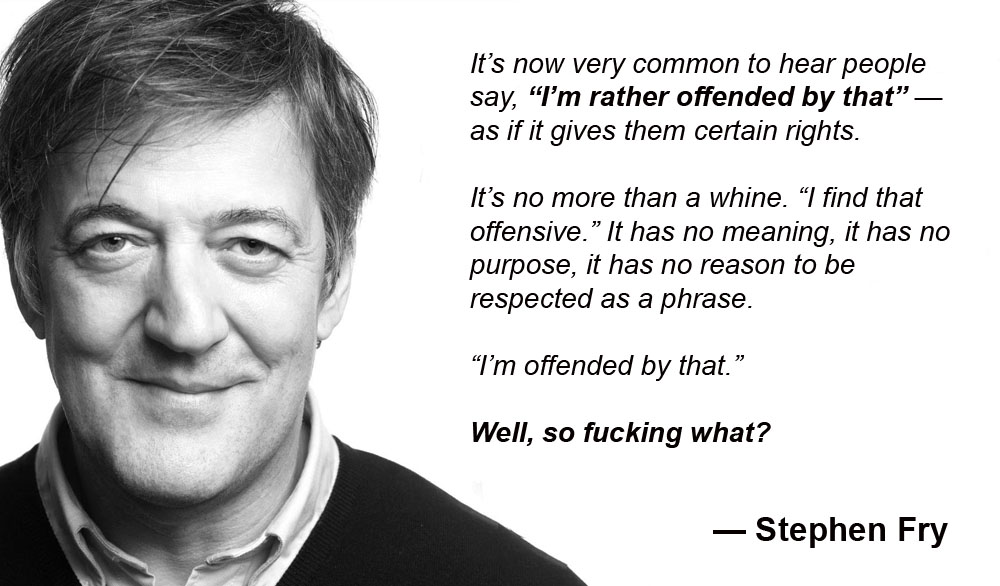The internet has been abuzz the past week over a 10-page anti-diversity “manifesto” written by recently terminated Google employee James Damore. On the surface, the uproar seems reasonable, but I’m going to argue that it’s for the wrong reasons.
I’ve ruminated on whether or not to address this topic, because it’s clear that the writer’s firing has resulted in a chilling effect (within and without Google). I’ve considered the consequences of having current or future employers reading these thoughts, but at the end of the day, this is a mass comm blog and I believe this is a media issue. That said, of course everything I write here reflects my own personal opinions. I cannot emphasize that enough.
Here’s my main gripe with the coverage around this story – the media carelessly ran away with it, throwing nuance and context to the wind, all so it would fit more neatly in a black and white narrative.
How many people reading these stories are aware of the source of the manifesto? I would assert that it’s the minority. That’s because click-hungry journalists would have you believe that the former Googler unsolicitedly sent this 10 page document to his entire team/company. And that’s simply not true. The reality is he posted it on a private internal Google Group meant to discuss “controversial” ideas openly, and invited feedback/criticism. The author included footnotes and embedded links to abstracts to support his points. You can read it in full context here: https://diversitymemo.com/. Journalists copied/pasted portions in plain-text, stripping it of its context, making the content seem more unsubstantiated (to their credit, Vice was one of the few to post the entire memo unedited).
The overuse of the term “manifesto” is also inherently problematic. Unless you’re following UK politics, it’s a term most commonly associated with communists or serial killers/mass murderers. As of today, we’re coming up on 1,000 individual articles that refer to it as a “manifesto” within their headlines (and that’s not counting those that only do so in the body copy):
Google News screenshot, accessed Aug 11, 2017
I want to make it clear that I am not tacitly endorsing the creation of such a document or the ideas therein (in fact, there are many logical fallacies and conclusions to which the jump was a bit too far). It’s also been years since my last sociology and evolutionary biology courses, so I won’t fact-check the citations either. I’m not saying that tech doesn’t have gender inequality and harassment issues (Uber has provided us with more than enough examples). But I am making the point that if someone posts a working version of a dissenting opinion that others disagree with on a safe space meant to discuss such ideas, then the most logical next step would be to debate the validity of those statements and provide evidence to the contrary. Present compelling counter-arguments such that the author can revise his thesis (and maybe ultimately change his way of thinking). Instead, what Googlers did was violate their non-disclosure agreements to share the document publicly, much to the detriment of the author and to Google as a company.
This is extremely bad timing for Google.
It would be ill-advised to ignore the larger Google context. At the moment, the Department of Labor is investigating Google for a purported gender pay gap. The 3,300 word manifesto ends with a criticism of Google’s internal biases with regard to hiring. Other commentators have posited that Google fired Damore because if they hadn’t, their inaction could be used against them in future discrimination lawsuits. It may seem farfetched, but the logic holds water – an employee writes about Google’s biases; Google takes no action, which could be construed as an implicit acknowledgement of said biases.
The media echo-chamber of pitchforks certainly forced Google’s hand to take immediately action. What would’ve otherwise been a confidential and internal matter became a national one.
I’m not an HR specialist, and neither are you (probably).
What’s most important is what happened behind closed doors when Damore was fired. Was it solely the manifesto that led to his firing? Or was there a pattern of violating anti-discrimination laws? He was a senior engineer after all, and presumably had influence on who was hired. The thing is we don’t know, so it’s difficult to say whether or not his firing was justified, based on what’s been presented in the media. In either case, it seems like he might pursue legal action against Google.
But let’s also get one important thing out of the way:
This is not a free speech issue.
Far too often, people conflate “freedom of speech” with a guaranteed right to say anything in all situations. That’s a fundamental misunderstanding of the First Amendment. Freedom of speech means that the government cannot censor citizens, within specific confines (e.g. you cannot endanger others in exercising your speech).
Where the lines blend is when Google states companywide that their goal is to foster “a culture in which those with alternative views, including different political views, feel safe sharing their opinions.” The next sentence in the announcement goes on to say that any opinions need to fit within their Code of Conduct.
But here’s the rub – in the manifesto (a part that many journalists don’t include in their stories), the author includes a caveat that you cannot judge individuals based on generalized gender trait differences. This point is made several times in varying language. Nowhere does the author say that women are inferior employees (a talking point parroted by many pundits). I will note that there is one bullet where he mentions Google’s hiring practices with regard to “diversity” hires lowers the bar, but it’s in conjunction with a private internal link so it’s not possible to determine how that point was substantiated (and if it’s focused on gender, ethnicity, or both). To paraphrase, his thesis is that due to societal influences, men generally seek more leadership roles and the way these roles are positioned is not as appealing to a plurality of women. I’m not going to argue for or against the merit of these statements (or their logic), but they’re definitely valid topics for debate. Except they weren’t debated, which is the key problem.
A leaked survey of 282 Googlers showed that only 30% thought the document shouldn’t have been created:
People don't seem to realize that internal backlash against James Damore isn't universal. Attached survey is from a Google mailing list. pic.twitter.com/i0vwlnqno7
— Sonya 🌐 Mann (@sonyaellenmann) August 8, 2017
On diversity hiring.
Quotas are a touchy subject. One of my previous employers sought to reach gender ratios, seemingly irrespective of supply and demand and the overall pool of candidates. I didn’t agree with that approach then, and I still don’t think it’s fruitful now.
The system I do believe in is actively including more diversity candidates in the consideration set, which would mathematically increase your quantity of diversity hires without artificially increasing the rate (given similar levels of proficiency and qualifications).
The topic of quotas also touches upon a separate issue that’s been in the news lately – Asian Americans taking issue against affirmative action. I won’t comment on the validity of that argument either as it would be a much longer essay, but it’s safe to say that a lot of people are against quota systems that exist for the optics of diversity. It seems we may be reaching an inflection point on the practice, for better or for worse.
Back to public shaming.
I’ve written about social media outrage before. Jon Ronson (author of the 2015 book So You’ve Been Publicly Shamed) likens social media to the new town square, where you can pin scarlet letters on people and ruin their lives. The book also ironically includes a chapter about using SEO for reputation management within Google results.
I believe this whole manifesto situation is just the latest on the long list of examples where the public has crucified an individual, egged on by the media.
And that’s why I chose a purposefully sensationalistic title on this blog post. It seems that in an attention-deficit, hair-triggered, social media-empowered world we find ourselves in, the most offensive thing is to have a nuanced opinion. If I’ve pissed off both sides of the debate, then I’ll happily accept that badge with pride.
Note: The majority of this post was written before Google CEO Sundar Pichai was meant to host a town hall discussing diversity within the company. The meeting was cancelled due to online threats.




